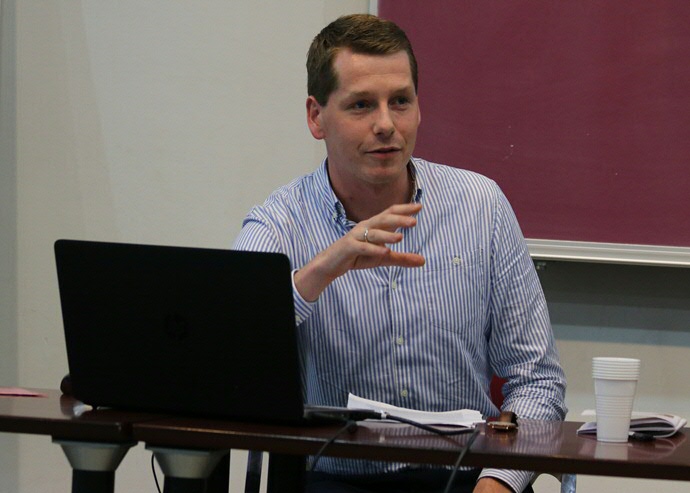Eelco Glas will be awarded a PhD for his thesis on Flavius Josephus’ Jewish War

‘Flavius Josephus is counted among the best-known as well as the most controversial authors of antiquity. Throughout the centuries, he played an important role in the development of both Judaism and Christianity as well as in the relations between these two world religions,’ explains PhD student Eelco Glas. ‘Even so, research into Josephus’ work and the reconstruction of his life has paid only little attention to his literary aims in writing his life story. Ironically, he is thus one of the most widely read yet least understood authors of antiquity. My thesis aims to fill this gap.’ Eelco will defend his thesis during a PhD ceremony to be held in the Faculty of Theology and Religious Studies on 2 November 2020.
Preconceptions about this Jewish historian
In his thesis, entitled Flavius Josephus’ Self-Characterization in First-Century Rome: A Literary Analysis of the Autobiographical Passages in the Bellum Judaicum, Eelco researches the Bellum Judaicum (Jewish War), a history of the Judaean revolt against Rome that took place between the years 66 and 70 CE, which is considered one of the most influential non-biblical texts in the history of Western civilization. ‘My thesis offers the first systematic literary analysis of the autobiographical passages found in the Bellum Judaicum, a Greek work written by Flavius Josephus in Rome at the end of the first century CE.’ One of the book’s most notable characteristics is the significance Josephus attributes to his own character’s role. Until recently, researchers only studied the work’s autobiographical sections, in order to reconstruct Josephus’ life and ideas. His controversial life story has resulted in strong prejudices about this Jewish historian and the intellectual qualities of his work, both within and outside academia.
New light on historian Flavius Josephus
Based on Josephus’ claims, many scholars assume that he wrote so extensively about his own deeds in response to accusations by his compatriots. Eelco Glas’ study can be seen as a break from this trend. ‘The bigger picture that arises from my analysis is that Josephus wrote his autobiographical tale in accordance with the Graeco-Roman literary conventions of his time. The use of apologetic motifs is one of those conventions. Such motifs would often be used in order to write a rhetorically persuasive story. Josephus wrote his story in such a way that it served his own purpose, for example to emphasize his own expertise and skills as a historian in Rome, and did so diligently. Taking this into account, my study sheds new light on this Jewish writer as well as on the literary qualities and the aims of his work. This study can also function as a starting point for new historical research into the life of Josephus and his position as a Jewish intellectual in Rome.’
A popular-scientific reflection for a wider audience
‘What I also really enjoy about this subject,’ Eelco continues, ‘is that it still appeals to the imagination. Because Josephus is so controversial and influential, this topic offers opportunities for popular-scientific reflections by a wider audience. Last year, for instance, I published an article about the historical background of Josephus’ work in Geschiedenis Magazine. Another piece will soon appear in the same magazine, discussing his life story and its reception after antiquity.’
CV and PhD ceremony
Since February, Eelco has been working as a researcher at the Faculty of Theology and Religious Studies and as a lecturer of Ancient History at the University of Groningen. He is currently designing a new research project with the preliminary title Philo: A Jewish migrant between Alexandria and Rome. Eelco Glas will defend his thesis on Flavius Josephus’ Bellum Judaicum in the presence of his supervisors, Prof. Steve Mason, Professor of Ancient Mediterranean Religions and Cultures, and Prof. Lautaro Roig Lanzillotta, Professor of New Testament and Early Christian Studies at the Faculty of Theology and Religious Studies at the University of Groningen.
- When: Monday 2 November 2020
- Start: 11 a.m.
- Where: Academy Building
- Curriculum Vitae and contactinfo Eelco Glas
More news
-
06 January 2026
Connecting with history
